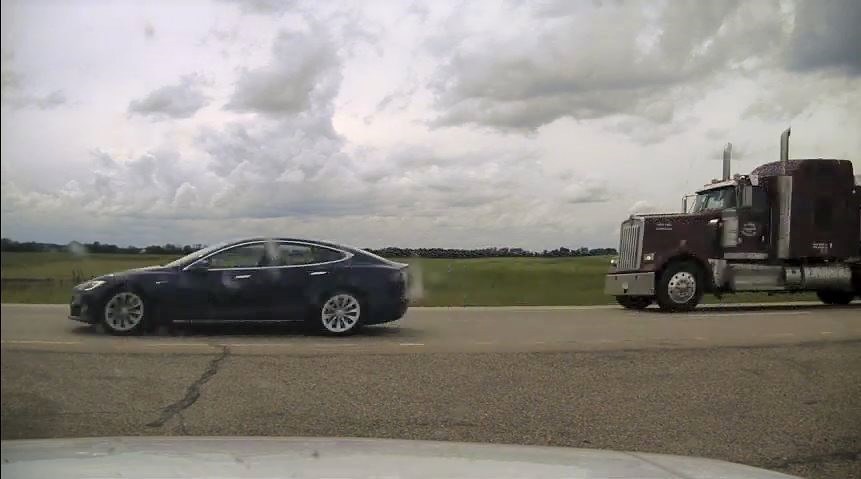Following recent charges involving a self-driving Tesla in Alberta, a new book is touting the benefits of self-driving vehicles.
This past July, a B.C. Tesla driver was charged with dangerous driving on a central Alberta highway after being filmed fully reclined while the car was doing 140 km/h.
At the time, Mounties indicated they couldn't see either of the two occupants in the vehicle and believed they were sleeping. That case will go to court in December.
Ryan Abbott, a professor of Law and Health Sciences at the University of Surrey School of Law and assistant professor of medicine at UCLA says self-driving cars may already be safer than people.
"Most people say they would feel unsafe being driven around by their car, yet AVs (automated vehicles) may already be safer than people," Abbott says. "Human drivers are dangerous – about 94 percent of crashes involve human error. Worldwide, more than a million people die each year in motor vehicle accidents, and tens of millions are injured. This is almost exclusively the result of people being terrible drivers."
Abbott has written a book entitled "The Reasonable Robot: Artificial Intelligence and the Law". He writes "there have been a few fatalities from self-driving cars, but those tragedies weren't the fault of the artificial intelligence that powered them."
A Tesla spokesperson points to data indicating that Tesla drivers have logged more than a billion miles with Autopilot engaged and that Autopilot tends to make drivers safer. There have been incidents involving AV fatalities that involved Tesla’s Autopilot system, but they have since been determined by regulators not to be the AV’s fault.
The investigations did indicate a gap between the autopilot and drivers. Human drivers are supposed to be prepared to retake control of the vehicle on short notice, but the research shows it is difficult for people to remain alert and engaged while an AV is driving.
In spite of these challenges, Abbott says we should not give up on the technology.
"The perfect should not be the enemy of the good."
"AVs do not need to be harmless to make people safer; they just need to be better drivers than people," he explained. "Whether in 2025, 2035, or 2045, AVs will not only be safer drivers than people but much safer than people. AVs are rapidly improving and human drivers are not, which is important with respect to legal liability for wrongful acts."



